I’m writing to you from the very front of the garden, right by the green gate, as bees work at the comfrey—lus na gcnánh bristle, and a fledgling wren—dreoilín— messes about in the ivy—eidhneán. The only sounds are the wood pigeon’s low song and the humming of bees—siansán.
I am grateful to be here, in ways I will never quite be able to word. I’ve been thinking, reading and writing about gardens lots, talking about them too, alongside thinking, reading, writing and talking about climate emergency: we cannot untie these two finely woven threads. I had a very tricky time last week. The sun is out in full splendour in the west of Ireland and much as I love it, crave it, need it; I am worried too. Something about days upon days of sun in Ireland triggers my anxiety; my climate anxiety—digs up memories of my peripartum depression too, and I’m left there alone in a sprawling wilderness: unrooted, shaky.
How are these two things connected, you may wonder; climate anxiety and peripartum depression? I became pregnant during a global pandemic, amidst housing, political, financial, social and climate crises. The pandemic has shown, continues to show us, that we have reached a point where something (everything) needs to change. Something needs to give. I’d spent a decade and a half making peace with not having a child, telling myself that even if I could have one, I really should choose not to anyway; given the situation we have found (put) ourselves in here on this planet. To then have that much longed for child, and try to work thorough the guilt and shame that surfaced, has been quite a journey. On top of this, the only place I managed to be, outwith our small stone home in the central bog land of Ireland, was our small garden.We are not designed to raise our young so isolated, so terrified. Our early days together — my wee bird and I — were far from easy. There was no support available to me aside from my supportive partner, and we turned to the only places we knew well; those outside. We walked the bog with a small person who would not sleep. We paced the spring, turning summer, laneway with a wee one who would not gain the amount of weight the nurse wanted him to; my darkness ignored time and time again by the professionals who were supposed to guide me through. I learned to calm my overstimulated, fearful maternal body by taking it into the garden. It was too hot that first year he came to sit outdoors with him, or rather I was too severely anxious to imagine ways I could successfully keep him safe in a situation so unknown. Heatwaves are not part of what I have lived and learned. We used the water we had collected quickly and decided we would have to up our game in the years ahead; learn more about ways to mind our own family as we felt so left alone; in the moment we needed others the most. We understood, very early into our parenthood journey, that we would need to unlearn lots of what we had taken as true in life. For us as a family, much of that related to the land; the places we called home. We knew the garden — perhaps not our isolated one— would become more and more central to our lives. I felt the pull to that space more extremely than to any other place in my life before then.
Motherhood drew me back to the earth.
This was supposed to just be a simple post about books about gardens. But life does not really work in that way, and books — like gardens—are political things. How we read, how we process that information, what we do with it all— matters.
It is no coincidence that the first work I made after giving birth was about the small stretch of land outside our home; that my first child and my first garden would so deeply permeate my writing.
It is no coincidence that the only place I felt comfortable to howl and bawl; to scream and cry; to trust the world enough with my grief and my fear; my unfolding journey through matrescence— was my garden.
It is no coincidence that now, in this rented garden, as we prepare the land at our new home, I find myself reminded of all we came through; all I came through to still be here. It feels natural to be reminded, over and over, of how close I walked on the edges of that cliff; to feel the deepest gratitude alongside the still rippling anxiety. I spent the first two summers of my son’s life thinking I would not see the next summer ahead. It is a huge claim to make that reading helped me stay here, writing too, but it is my truth and I need to own it. There was therapy, lots of vast changes needing made—some I still struggle with—but reading and writing about this glistening, aching, living, dying world was a way for me to remember how to breathe. To remember that I love this earth and she loves me and we matter and belong; each to the other.
During those dark months— it was over a year— of peripartum depression, I sought deep comfort in the cycles of the natural world as played out in the garden (two different gardens, in fact; Ireland and Cornwall.) This is not a story of the healing power of wild flowers and spotted flycatchers—it is a story of survival and of decay; of hanging on for dear life (it is so very dear) and of finding the way back to a place I thought I had lost. I still have some of the flowers I gathered in that time period, dried out and fading, and they are a visual reminder of so, so much. I still have the books I read both then and now, in this vital period of healing, and I am going to share them briefly here. There will be more posts that go into these books and others in more detail so I hope you will return to read more. I’ve found great comfort in them and hope you might too.
Not a gardening book at all but a book about land and climate emergency and an honest reckoning on our responsibility as humans on this planet. I adored The Nerves and their Endings. Jessica Gaitán Johannesson writes so arrestingly about what I spoke of earlier—the wrangling with thoughts about desire to be a parent and the anxiety around our planet. There is a section on the inherently racist nature of the population argument that is more excellent than anything on it I’ve ever read but the bit I’m most affected by is this, when she explores as much as she can around the possibility of bringing a child into the world, through sections addressed to the imagined unborn child:
“It’s my fear I’ll have to deal with—my non-negotiable worry for your well-being…I know your life would be harder than mine has been. It may also be open, full of connection in ways I have never known. How you bring the world into being around you is beyond me. I don’t want it to be beyond us.”
I’ve included this book here as questions of reproduction are questions of land and of safety; of earth and of being human — and gardens allow us the space in which to lean back into these vast, unsettling, life-changing (and life making) unknowns.
How my son brings the world into being is one of the things that reminds me of my responsibility to the earth me earth my feet, and I am glad I took the leap into this wilderness.
Uprooting is a cracking, glistening, important book that will change how we speak of gardens, land and identity in myriad ways. A story of becoming and belonging; of building a safe, beautiful life as a means of digging up the chains that colonialism has tried to keep our world bound by. A telling of a woman, of a mother, a gardener, a writer, an activist. A book that reminds us to stand tall in our own truths, to listen and to look, that helps us remember how much it means to write down these things that matter so much. This book won the Nan Shepherd Prize—currently open for submissions— so if you have something in it’s earthy, early stages of being: SEND IT TO THEM!
Marc Hamer’s exquisite book Seed To Dust was shortlisted for the Wainwright Prize for Nature Writing at the same time as Thin Places (which was the first book to be highly commended alongside the overall winner) and meeting he and his wife was one of the joys of my life! A more life loving, people loving, earth loving soul you may never meet. This book is simply gorgeous:
“I am working the land. The many jobs that I did before this were only a replacement…bosses tried to make me do what they wanted…but I was a wild patch of thistles and nettle and butterflies…I left…and came back to the place where I belong, the land that sings me as its song.”
These are all great, I’ll return to exploring Twelve Words For Moss here soon, particularly in relation to shedding and grief.
It was an honour to contribute to this book, and it has helped me so much to revisit this week. I’ll look at two pieces from it in an upcoming post on gardens and grief.
I want to say a huge thanks to you all for reading, and to share how much it means to hear your responses to Cacophony Of Bone. There has not been much media coverage of the book in the UK — none in print form at all —so it is heartwarming beyond words to be tagged in such gorgeous, generous posts by readers, bloggers and other writers too. Thankyou for reading this quiet book about gardens & grief; growing & healing ; about motherhood and joy in the everyday.
If you have enjoyed this post and others I have shared with free subscribers, you can Buy Me A Coffee — or perhaps you would consider a paid subscription. It is one of the main ways you a can support my work and be the first to read new writing and info on events. I plan on branching out; on growing this wee garden, to include interviews with other creatives, workshops and more. It would be beautiful to have you alongside me. X



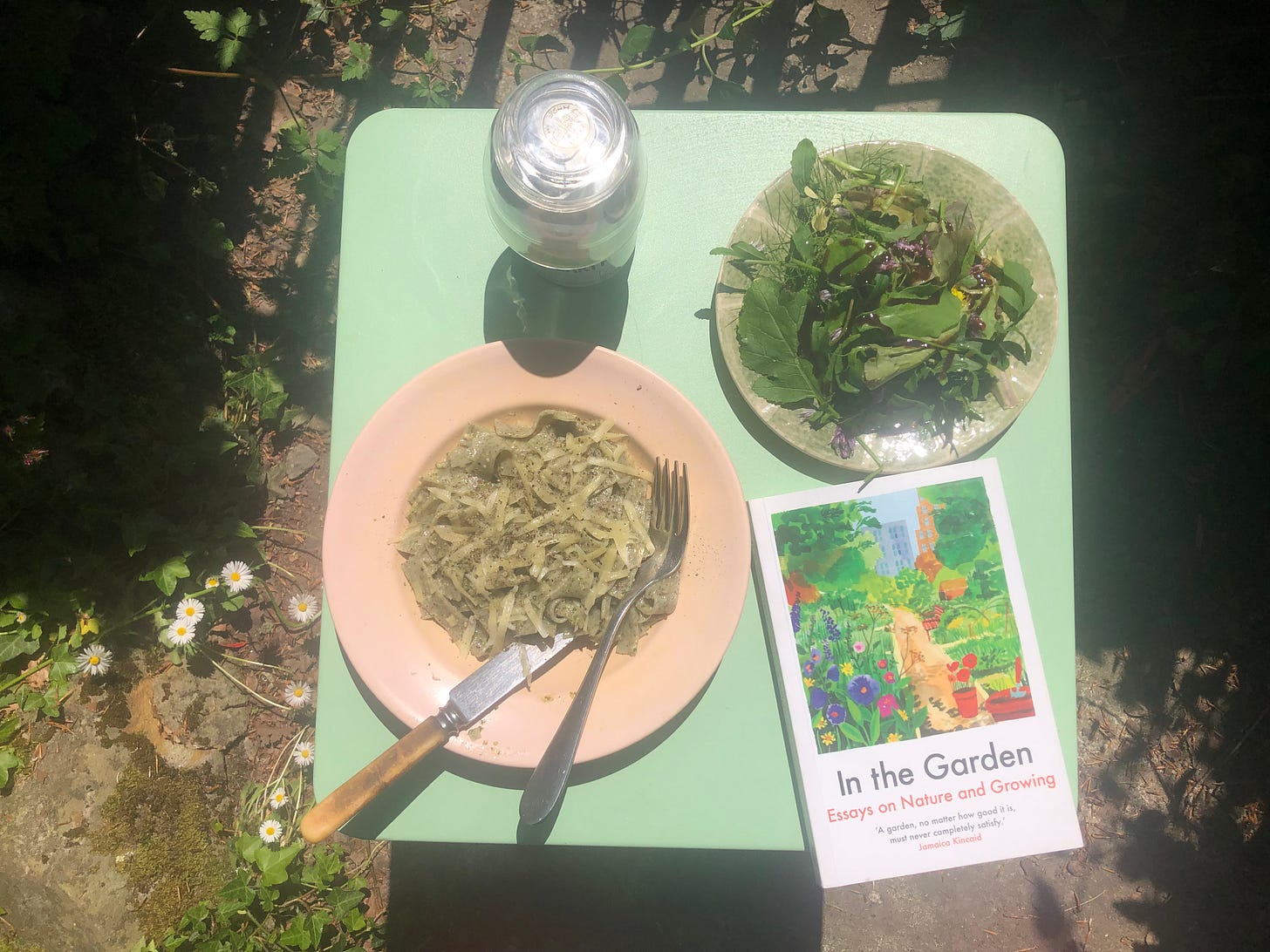
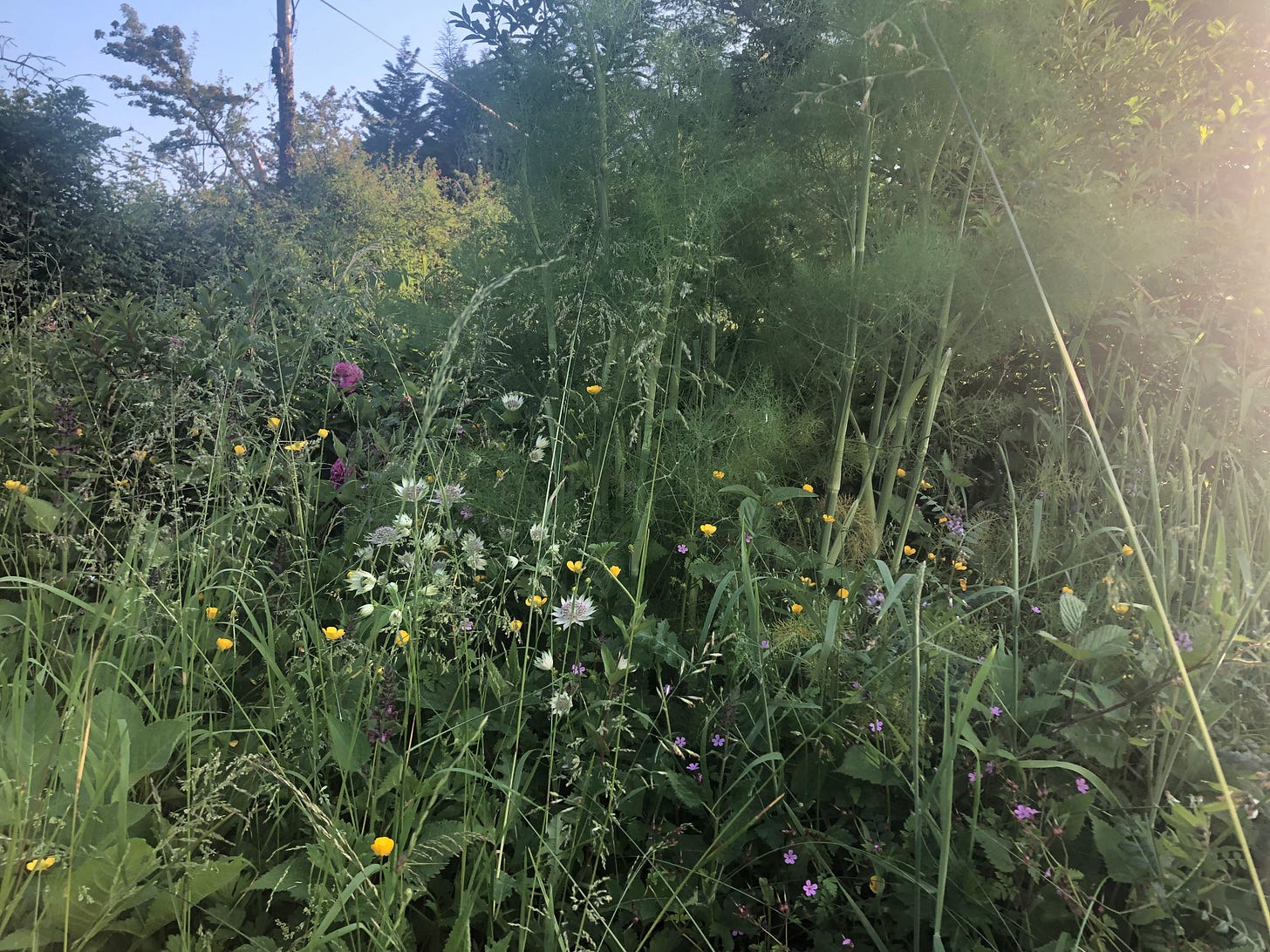
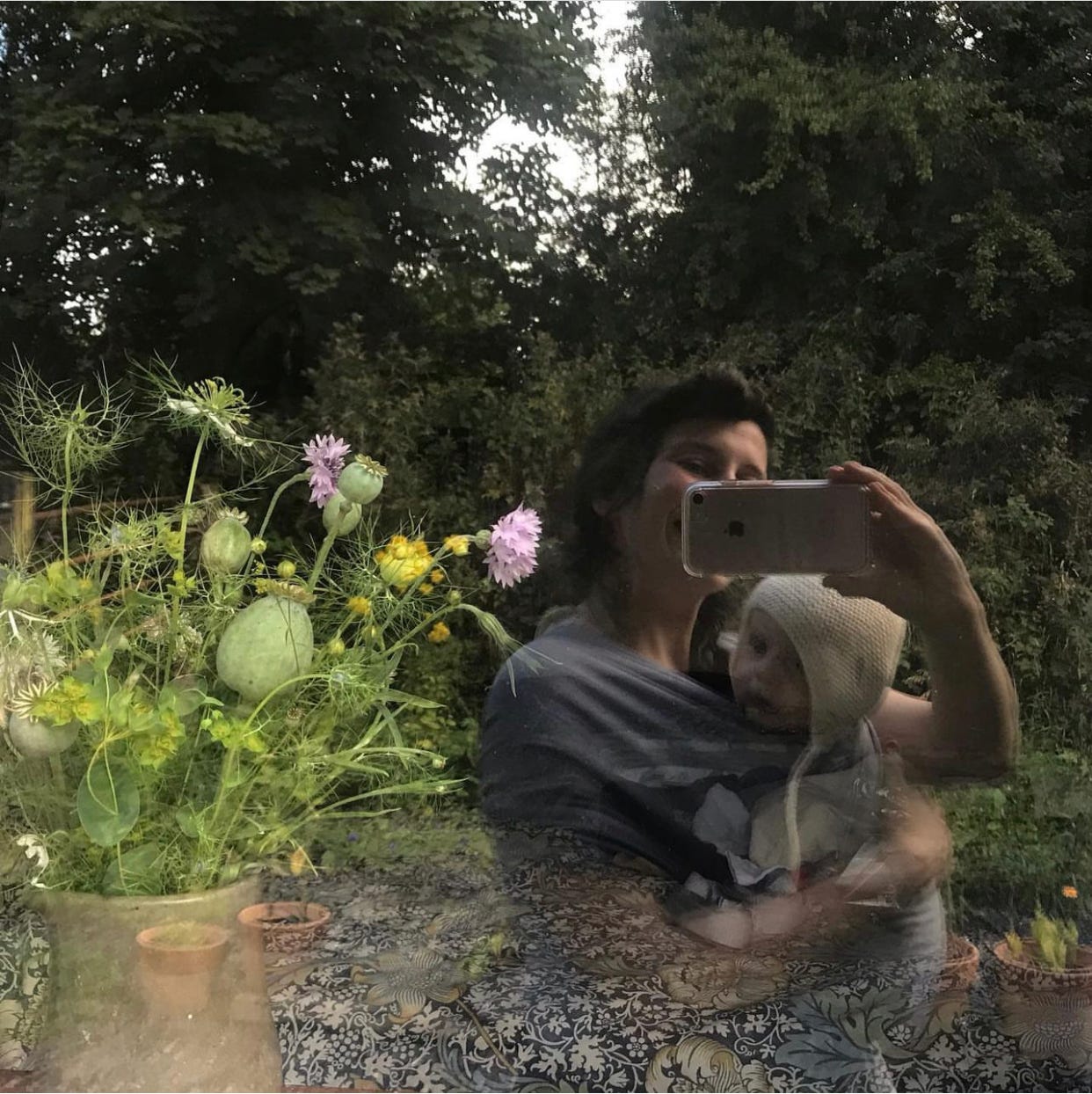
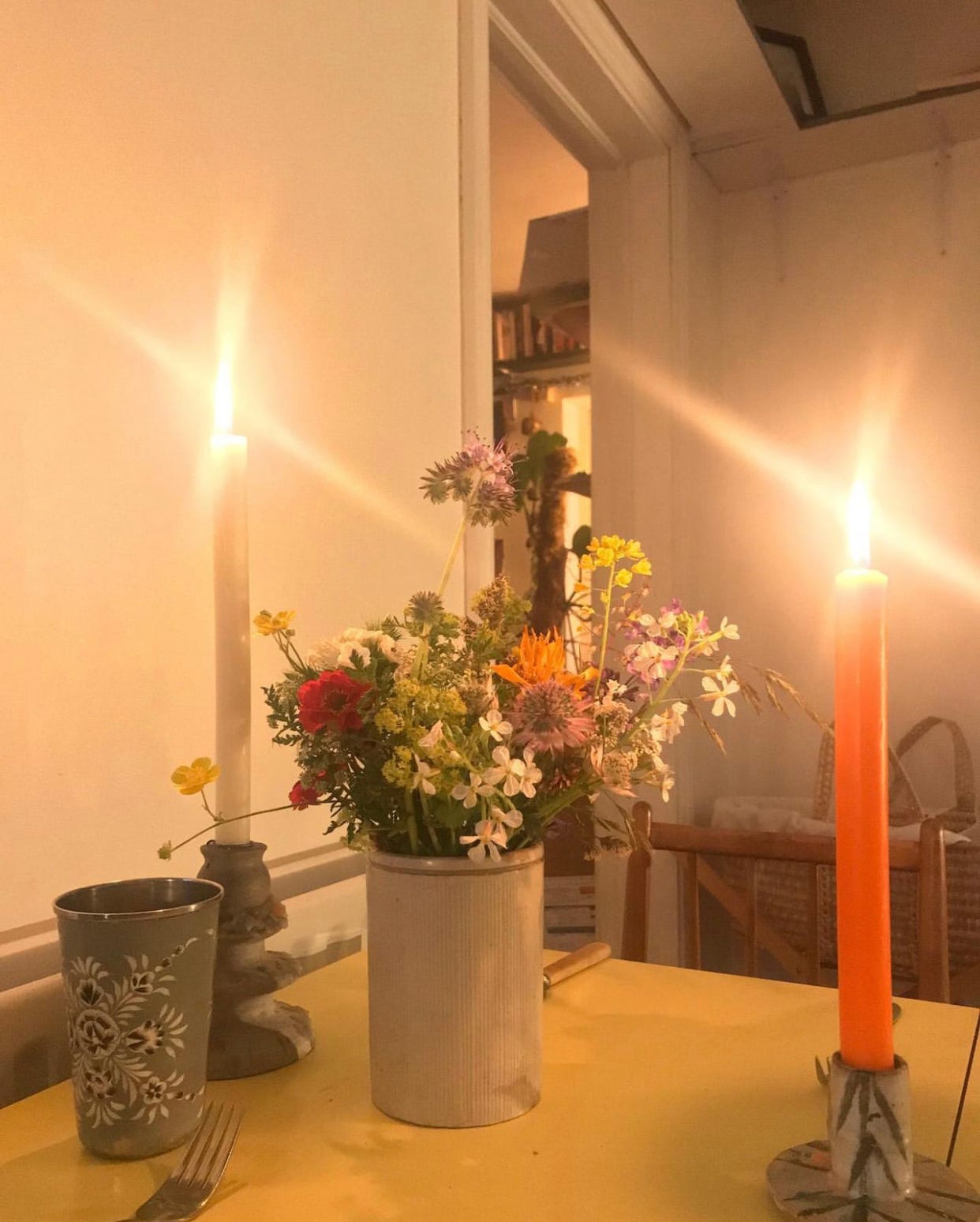
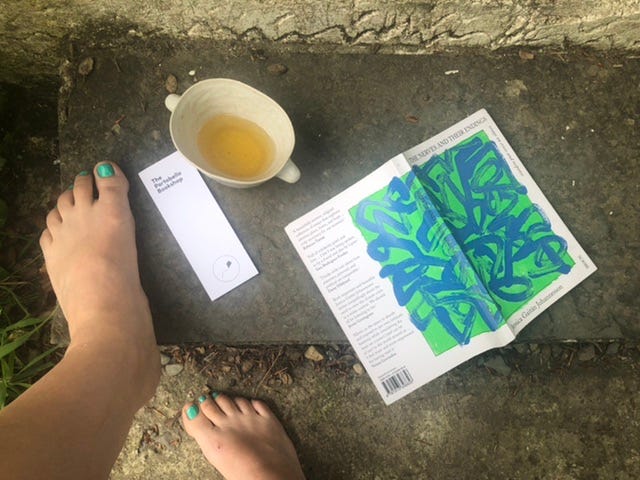
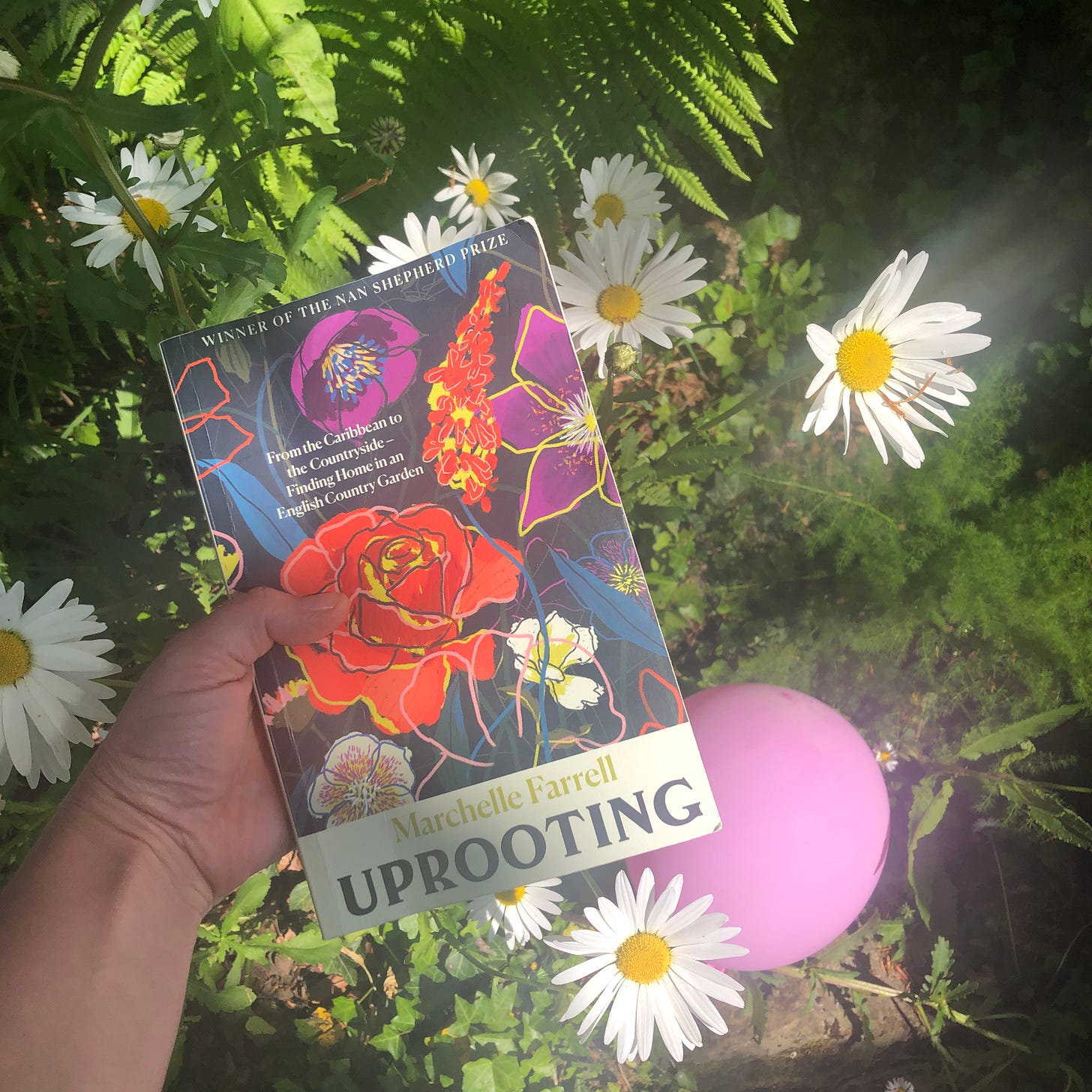
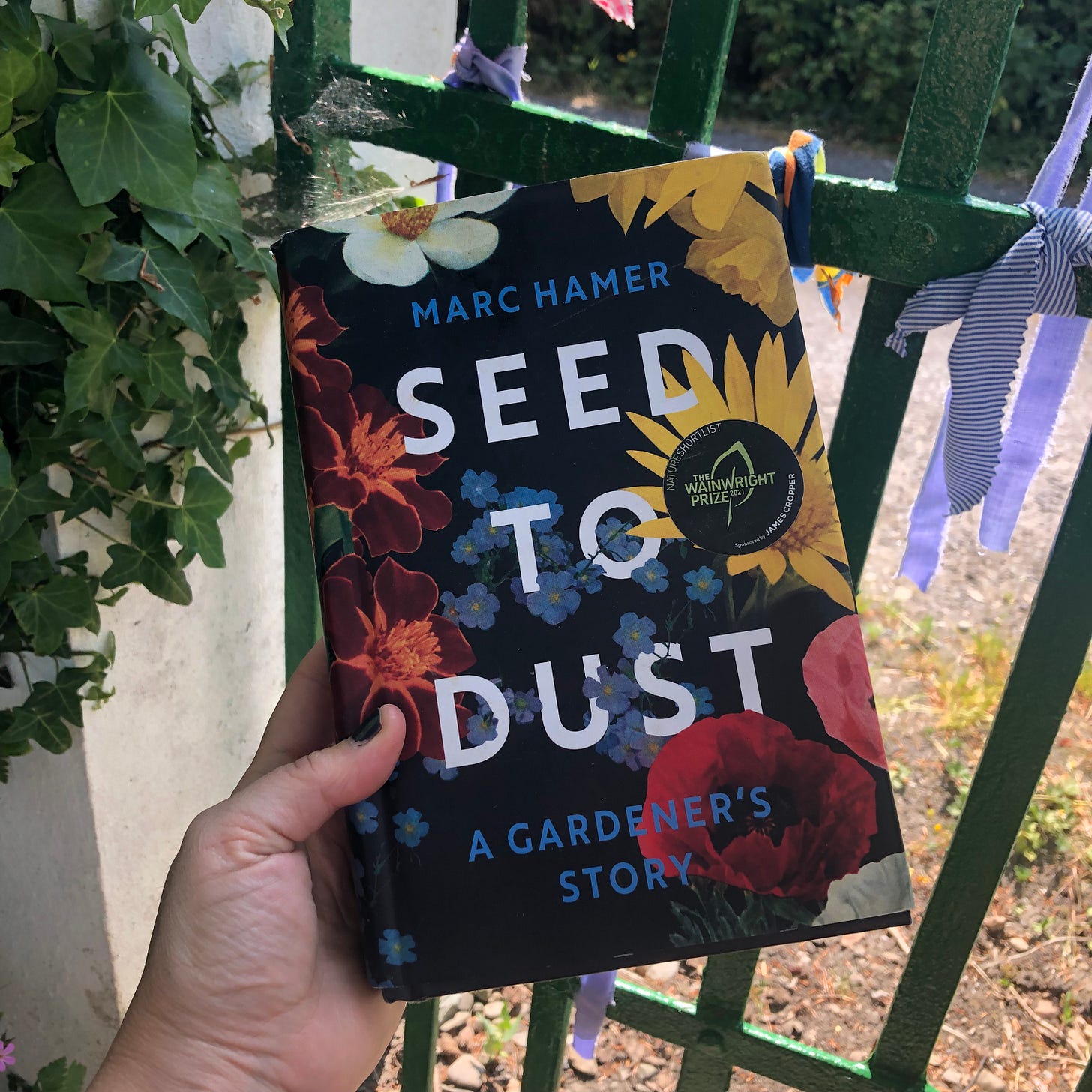
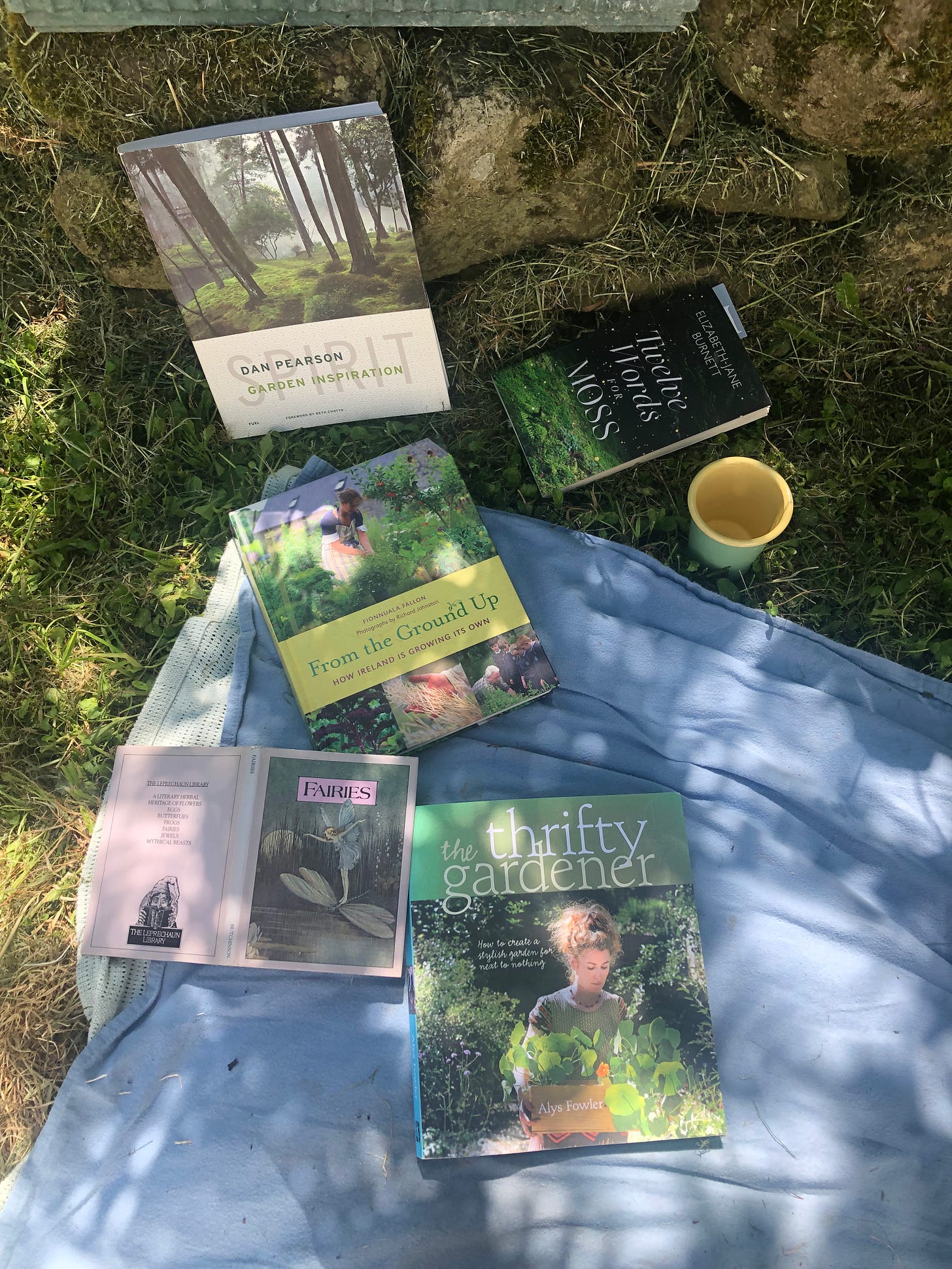
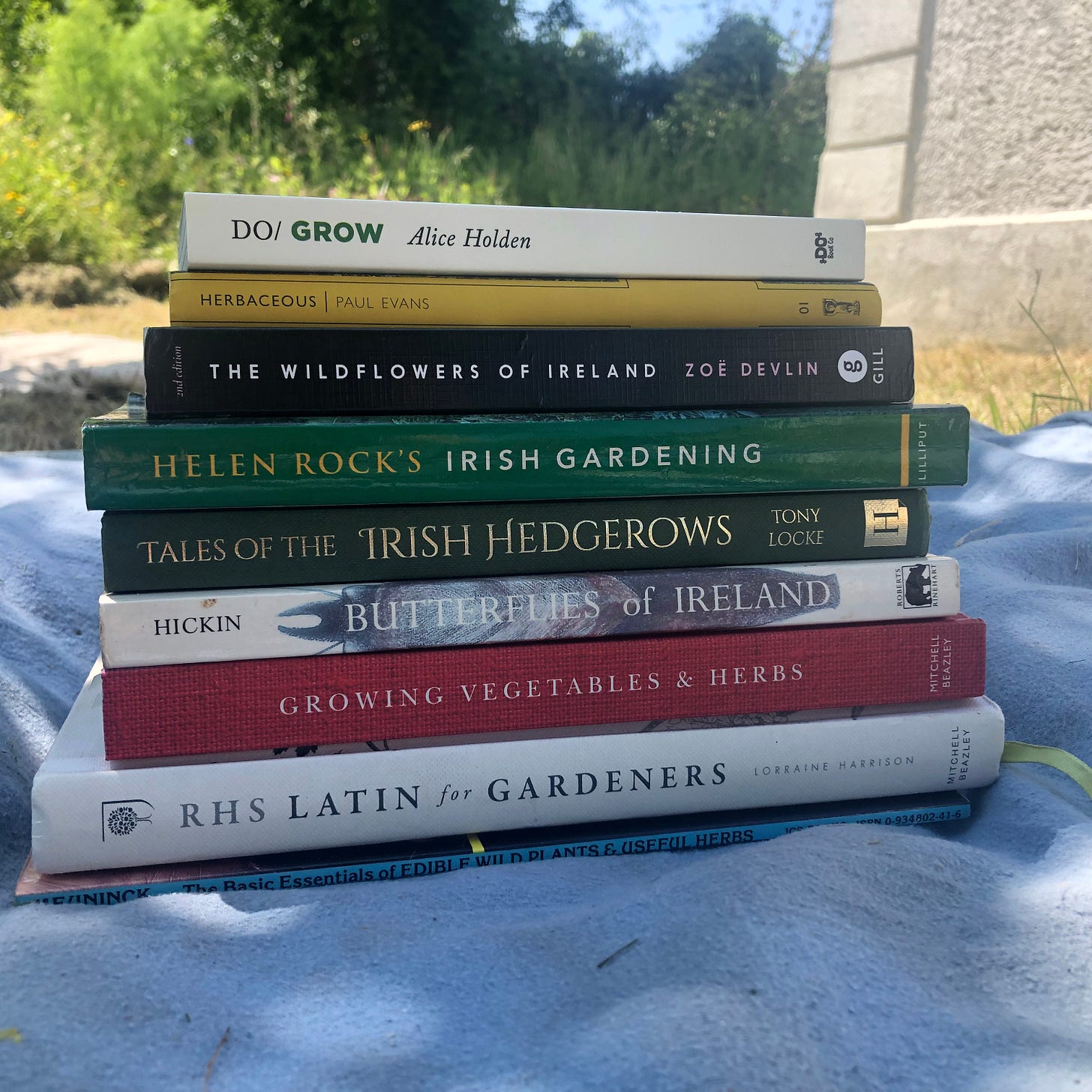
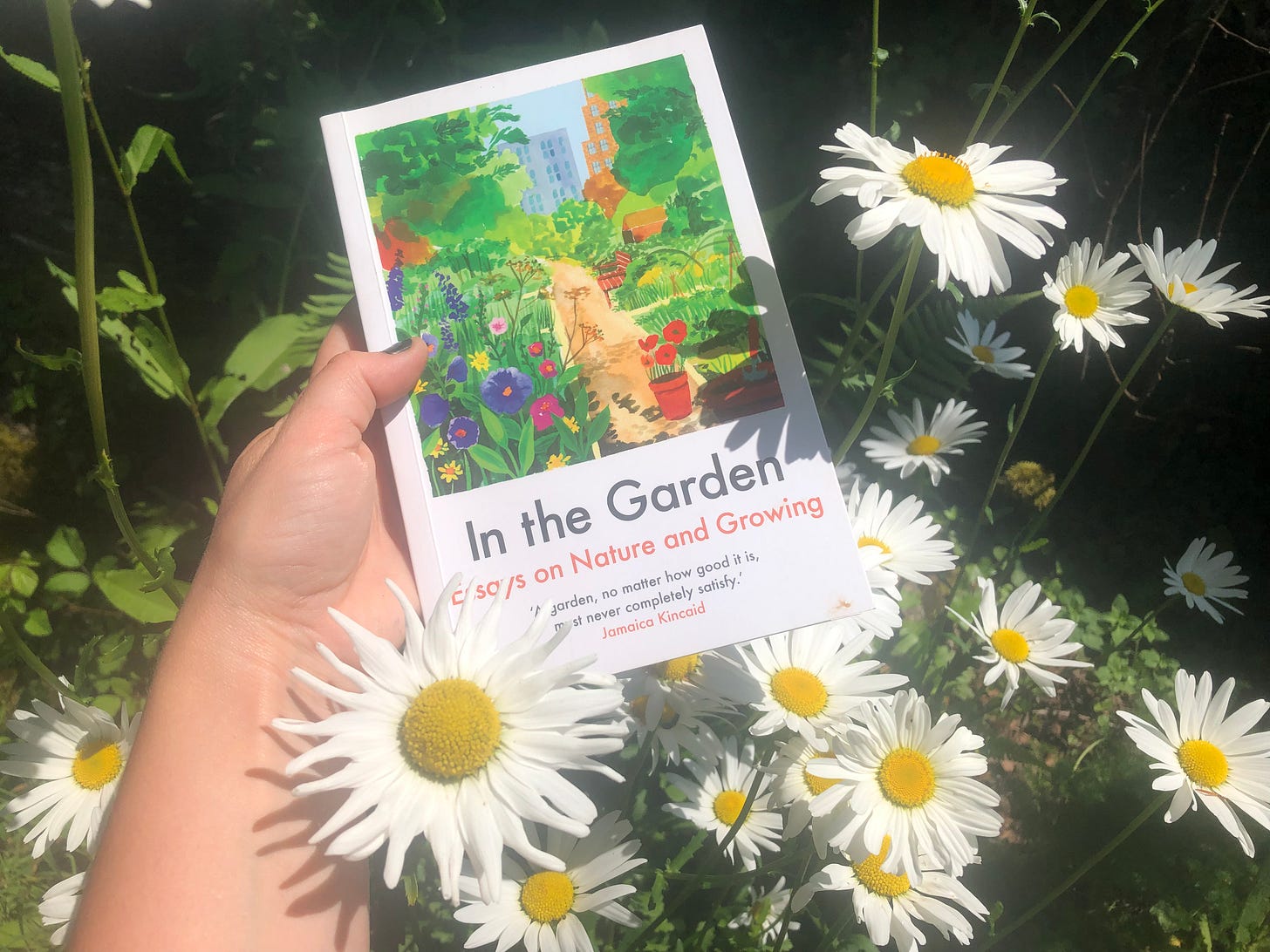
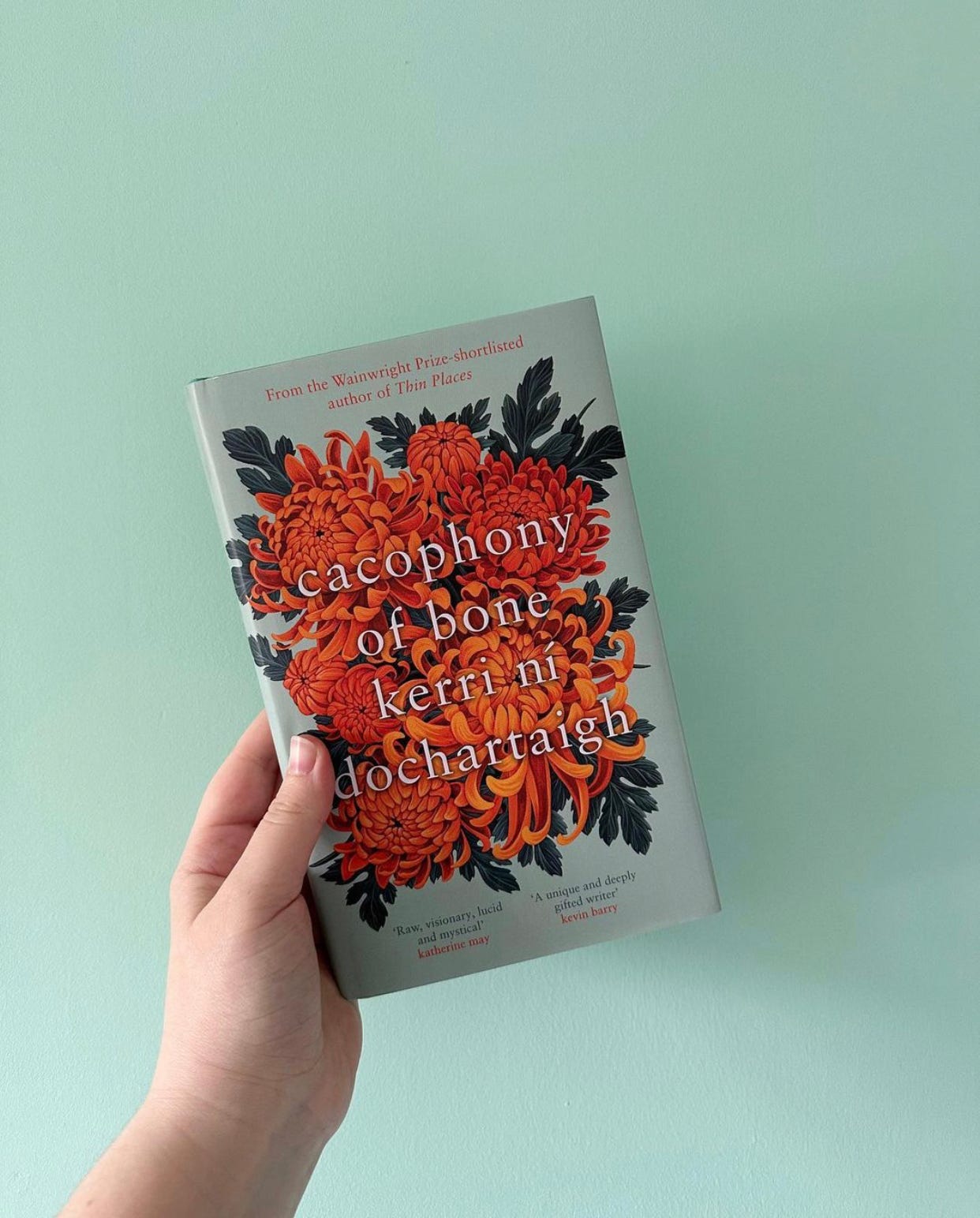
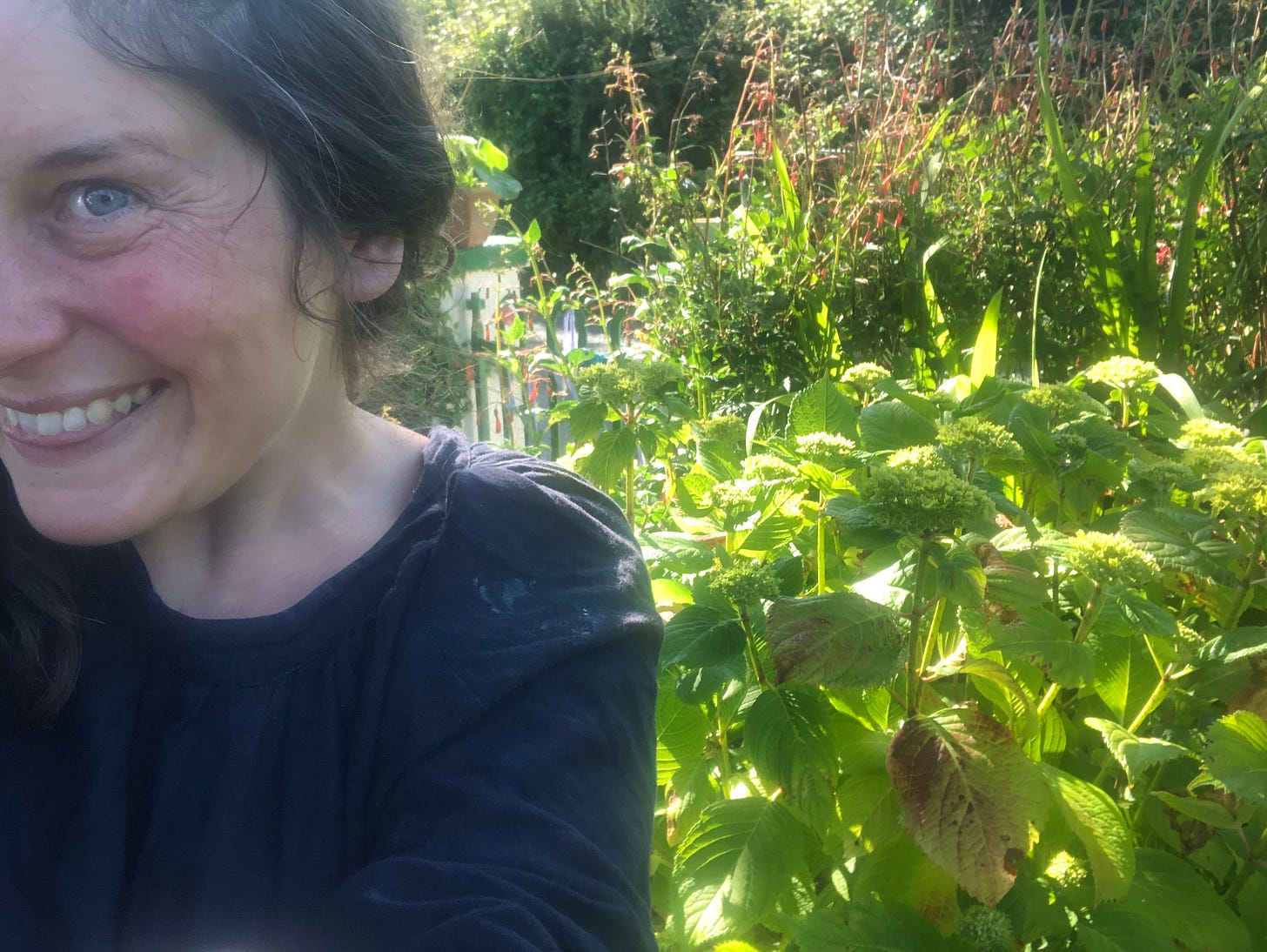
Thank you as always Kerrí. Writing this sipping lemon balm on my break (I work as a gardener). You've hit so many nails on the head. Marc Hamers words also really resonated with me. I must check him out. Rain by end of the week in West Cork...we hope!!!!
So much to think about in this beautiful post, Kerri. ‘Motherhood drew me back to the earth’. Yes, yes. I’m v much looking forward to reading your book when it arrives. 💚🧡